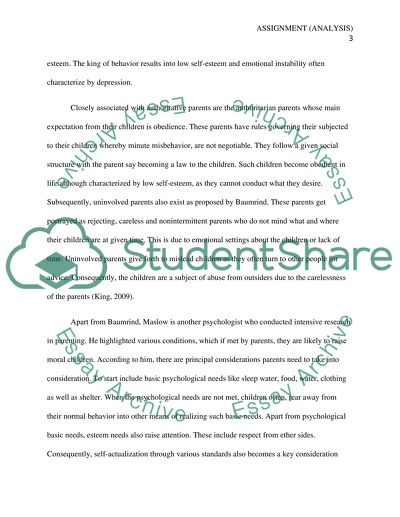Cite this document
(“Theories of Parenting ( Baumrind, Maslow, Adler and Erikson) Assignment”, n.d.)
Retrieved from https://studentshare.org/family-consumer-science/1456430-assingment-analysis
Retrieved from https://studentshare.org/family-consumer-science/1456430-assingment-analysis
(Theories of Parenting ( Baumrind, Maslow, Adler and Erikson) Assignment)
https://studentshare.org/family-consumer-science/1456430-assingment-analysis.
https://studentshare.org/family-consumer-science/1456430-assingment-analysis.
“Theories of Parenting ( Baumrind, Maslow, Adler and Erikson) Assignment”, n.d. https://studentshare.org/family-consumer-science/1456430-assingment-analysis.


